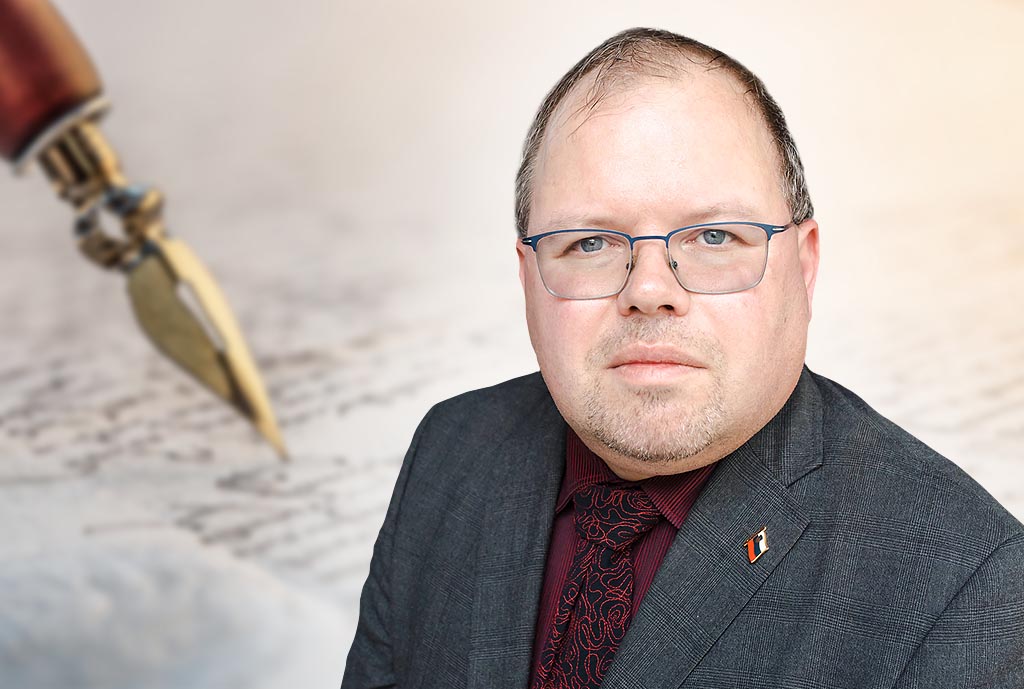By: Gašper Blažič
What is society, and what is a community? This is a question that may mark the upcoming year more strongly than ever. In the middle of 2024, new elections for the European Parliament await us, which are highly uncertain. Two scenarios may unfold: either due to the indecisiveness of the conservative side, socialists may finally secure a majority of votes, or on the other hand, extreme populists may rise, aiming to end the alleged “Jewish” EU story forever and reinstate the self-sufficiency of European states known from history. Neither of these options is good for either the European Union or Slovenia, where the standards of democratic openness are dangerously narrowing. Meanwhile, people continue to dance as if on the sinking Titanic, while the unruly tentacles of authority increasingly reach out to those with different thoughts. A free society? A successful community? It depends on one’s perspective.
Renowned German sociologists Ferdinand Tönnies and Max Weber wrote extensively about the distinction between society (Gesellschaft) and community (Gemeinschaft). While the latter denotes belonging to personal social interactions, roles, values, and beliefs based on such interactions, society involves belonging to indirect interactions, impersonal roles, formal values, and beliefs. However, the distinction between these two concepts is not entirely rigid, as small organisations (especially media), political parties, and ultimately even a state cannot be merely a society; these organisations always have the character of a community. Even though one might infer that the Republic of Slovenia is only a matter of our official affiliation, it binds us to something more: language, shared history, values that led to the formation of our country, and ultimately, the ethical foundation upon which our constitution is based. At least in theory, it should be so.
However, practice often paints a different picture. When the highly anticipated issue of Demokracija Magazine on left-wing hatred was released in December 2023 (especially the hatred on social media, which would be challenging to categorise as Gemeinschaft), the mere announcement triggered a frenzy of various trolls. In the face of these trolls, I often recalled the assessment of the late journalist Justin Stanovnik that the communist revolution actually pushed us to the level of cave dwellers and totalitarian damage, as well as the opinions of now-deceased actors of communist Yugoslavia, Stane Dolanc and General Veljko Kadijević. They argued that, unlike other Eastern Bloc countries, Yugoslavia and the Soviet Union had an authentic communist revolution (especially true for Slovenia). From these trolls, who consider themselves conscious Slovenes, actual hatred emerges, giving me the impression that Slovenes are, in fact, an association of two tribes, one of which wants Slovenia – exclusively, in a Hamas-like manner. Perhaps such a description is exaggerated, but even in 2000, some prominent commentators on social events naively predicted that reconciliation among Slovenes would be achieved once the last active participant of World War II passed away. However, partisans and home guards have long been gone, and hatred remains – particularly in the mental and ideological heirs of the revolution. Many of them were born several years after gaining independence.
What concerns us is the fact that such avant-garde hatred – a term borrowed from Dr Spomenka Hribar – is cultivated intentionally. And every time a group of youngsters attacks a rainbow flag, the message to the public will be: look at them, they do this because we do not hate and trample them enough. And symbolically, 33 years after gaining independence, it seems that Christians and adherents of the spring political paradigm are already condemned to death in their minds. Because in 1990, we dared to step out of anonymity as class enemies. And no, this is not about the division between left and right – it is about the division between normalcy and what belongs in the revolutionary bubble. Fortunately, many citizens of left-wing orientation also join the first group, normalcy. This is good news that brings some hope for a peaceful 2024.

